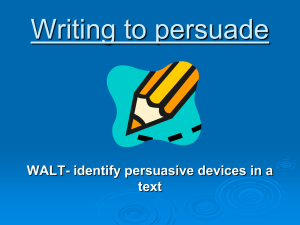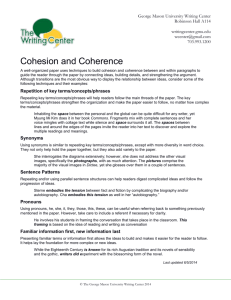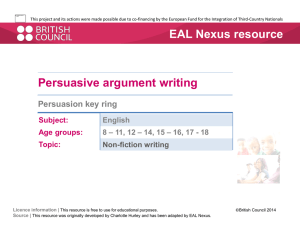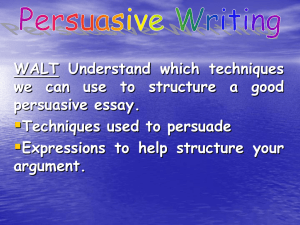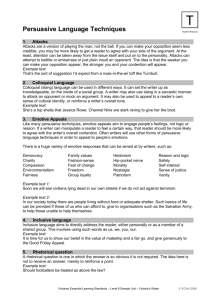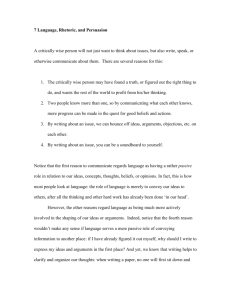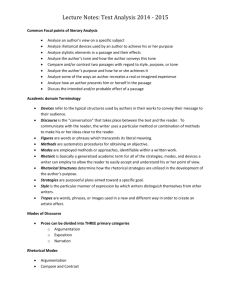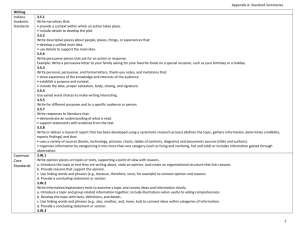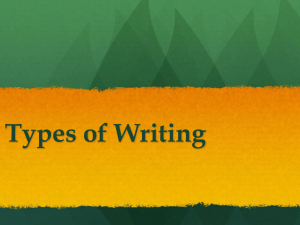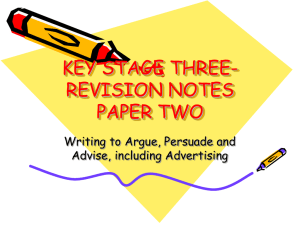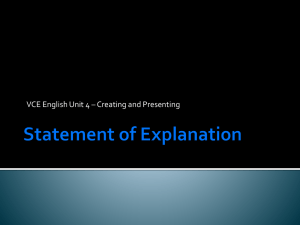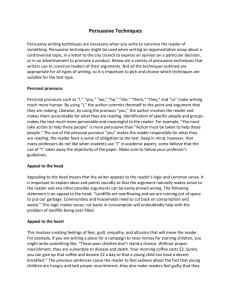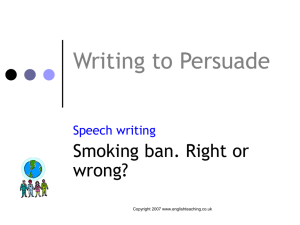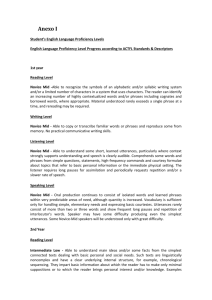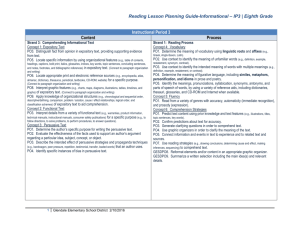Persuasive Techniques- Matching Exercise
advertisement
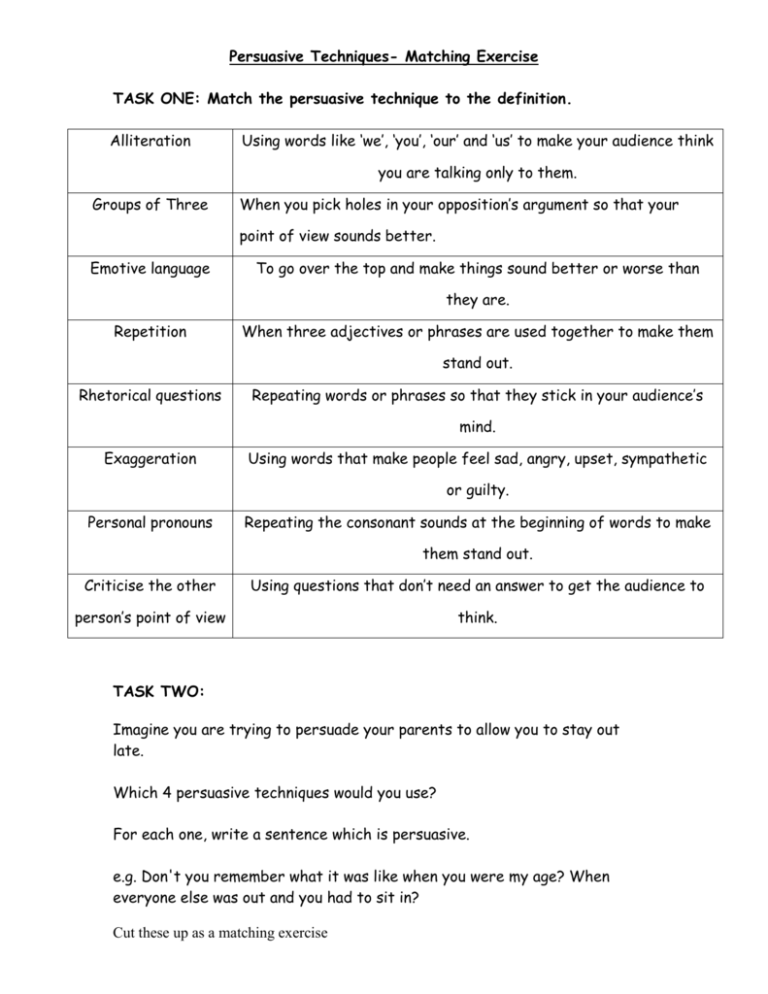
Persuasive Techniques- Matching Exercise TASK ONE: Match the persuasive technique to the definition. Alliteration Using words like ‘we’, ‘you’, ‘our’ and ‘us’ to make your audience think you are talking only to them. Groups of Three When you pick holes in your opposition’s argument so that your point of view sounds better. Emotive language To go over the top and make things sound better or worse than they are. Repetition When three adjectives or phrases are used together to make them stand out. Rhetorical questions Repeating words or phrases so that they stick in your audience’s mind. Exaggeration Using words that make people feel sad, angry, upset, sympathetic or guilty. Personal pronouns Repeating the consonant sounds at the beginning of words to make them stand out. Criticise the other Using questions that don’t need an answer to get the audience to person’s point of view think. TASK TWO: Imagine you are trying to persuade your parents to allow you to stay out late. Which 4 persuasive techniques would you use? For each one, write a sentence which is persuasive. e.g. Don't you remember what it was like when you were my age? When everyone else was out and you had to sit in? Cut these up as a matching exercise Rhetorical question A question that is asked which makes the reader think. e.g. How would you feel is you had 2 hours of homework every night? Repetition Words or phrases are repeated so that they stick in the reader’s mind. e.g. remember what is was like to be at school, remember how much work you had. Emotive Language When words are used to make the reader feel a certain emotion, like sadness or anger. e.g. We are the poor, helpless children who are forced to do hours and hours of homework every night. Exaggeration When information is given that is over the top, or slightly untrue. e.g. If I get set one more homework I am going to move to the moon! Facts and Statistics When truthful information is given to back up a point. e.g. 95% of pupils feel that there is too much homework. Groups of Three When 3 adjectives or phrases are used to emphasise a point. e.g. Homework is boring, dull and uninteresting. Persuasive Techniques Match up the techniques to their definition and examples by drawing a line to link them. Persuasive Technique Rhetorical question Repetition Emotive Language Exaggeration Facts and Statistics Groups of Three Definition and example When 3 adjectives or phrases are used to emphasise a point. e.g. Homework is boring, dull and uninteresting. When information is given that is over the top, or slightly untrue. e.g. If I get set one more homework I am going to move to the moon! When truthful information is given to back up a point. e.g. 95% of pupils feel that there is too much homework. A question that is asked which makes the reader think. e.g. How would you feel is you had 2 hours of homework every night? When words are used to make the reader feel a certain emotion, like sadness or anger. e.g. We are the poor, helpless children who are forced to do hours and hours of homework every night. Words or phrases are repeated so that they stick in the reader’s mind. e.g. remember what is was like to be at school, remember how much work you had.
